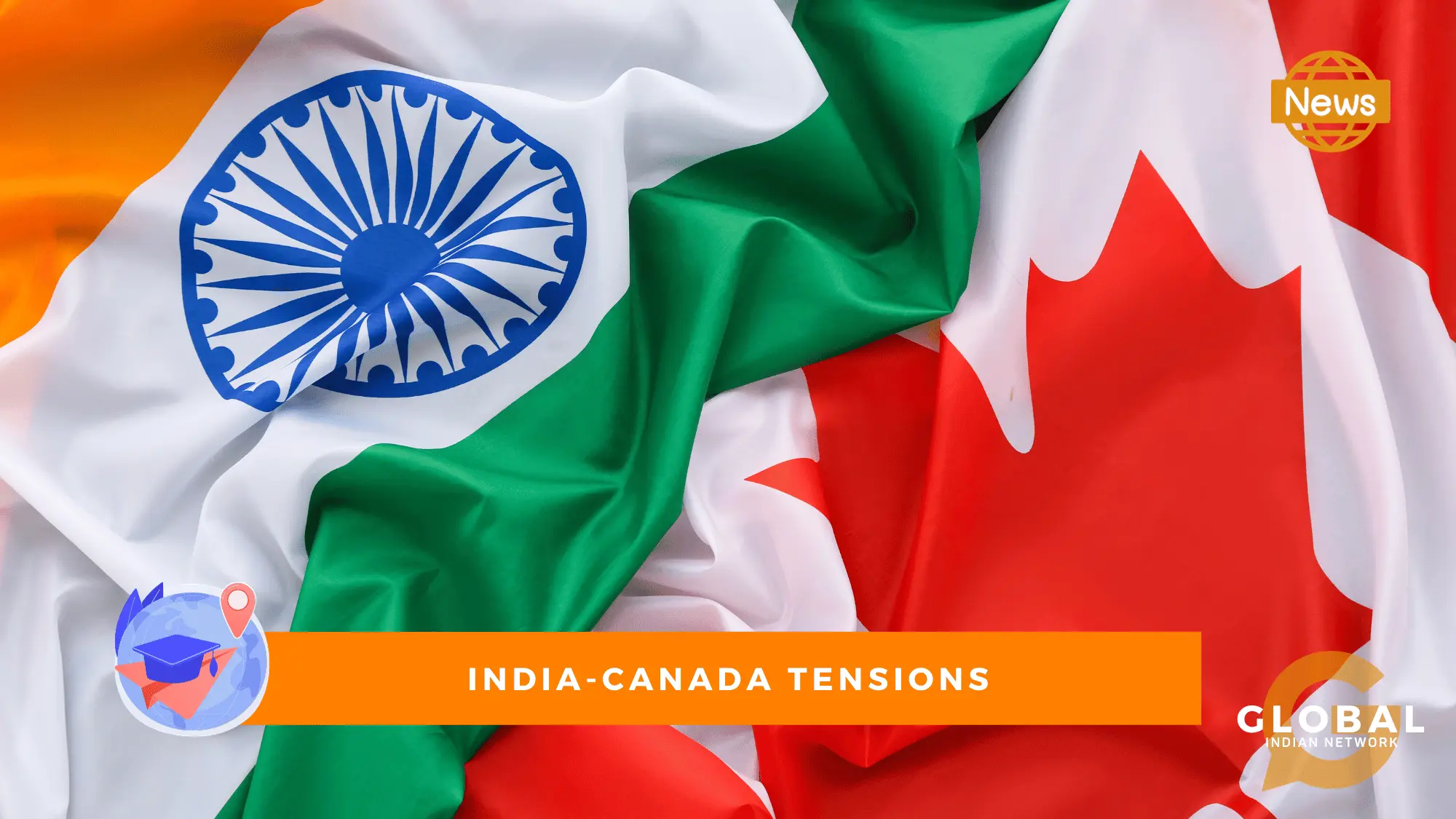Tensions between nations can have far-reaching consequences, often extending beyond immediate diplomatic disputes. One such tension that has garnered attention in recent years is the strain in India-Canada relations. These two democratic nations, with diverse populations and significant global influence, have found themselves at odds on several fronts, from trade disputes to differences in foreign policy. In this article, we will delve into the complexities of India-Canada tensions and explore their potential long-term impact, both domestically and on the global stage.
Table of Contents
Understanding the Context
Tensions between India and Canada have evolved over time and stem from a variety of factors. These tensions are more than just diplomatic disagreements; they have the potential to shape the trajectory of bilateral relations and have ripple effects on the global stage. To comprehensively evaluate the long-term impact of these tensions, we must first understand the context in which they have arisen.
Economic Implications
The economic implications of tensions between India and Canada reach deep into trade relations, affecting not only the two nations but also the businesses that rely on a stable trading environment. These implications range from trade disputes that threaten market access to the uncertain future of economic cooperation, casting a shadow over economic growth prospects.
Trade Disputes
Trade disputes between India and Canada have been a significant point of contention. These disputes primarily revolve around issues related to tariffs, agricultural products, and intellectual property rights. As both nations seek to protect their domestic industries and interests, these disagreements can potentially hamper economic growth and prosperity for both.
The Impact on Businesses
The trade disputes have a direct impact on businesses operating in both countries. Tariff hikes and restrictions on imports can disrupt supply chains and increase production costs. This, in turn, affects job creation, economic stability, and the overall business environment.
Future Trade Prospects
The long-term impact of these trade disputes raises questions about the future economic cooperation between India and Canada. A lack of resolution could deter investors and hinder the growth of bilateral trade, potentially pushing both nations to explore alternative trading partners.
Geopolitical Ramifications
Beyond the economic realm, geopolitical ramifications loom large as India and Canada grapple with diverging foreign policy objectives. These disagreements hold the potential to impact regional stability and influence global diplomacy. As the two nations navigate these geopolitical complexities, the world watches with keen interest.
Diverging Foreign Policy Objectives
India and Canada have differing foreign policy objectives on various international issues, including conflicts in the Middle East, Asia-Pacific security concerns, and human rights. These differences have strained diplomatic relations and hindered cooperation on the global stage.
Implications for Regional Stability
The divergence in foreign policy objectives can have serious implications for regional stability. For instance, India’s relations with countries like Pakistan and China have an impact on the broader South Asian and Indo-Pacific regions. Canada’s stance on these issues can either contribute to regional stability or exacerbate tensions.
The Role of Multilateral Organizations
India and Canada are active members of multilateral organizations like the United Nations and the Commonwealth. Their differences can hinder consensus-building and weaken the effectiveness of these forums in addressing global challenges such as climate change and international conflicts.
Societal and Cultural Dimensions
Societal and cultural dimensions play a crucial role in the India-Canada tensions. With a significant Indian diaspora in Canada and a rich history of cultural exchange, these tensions can potentially reshape the dynamics of social harmony, integration, and cross-cultural understanding within Canadian society.
Indian Diaspora in Canada
Canada is home to a significant Indian diaspora, which plays a vital role in the socio-cultural fabric of the country. The tensions between India and Canada have implications for this community, potentially impacting their sense of identity and belonging.
The Cultural Exchange
Cultural exchange between India and Canada has historically been vibrant, with festivals, art, and cuisine contributing to cross-cultural understanding. Strained relations may disrupt these exchanges, limiting opportunities for cultural enrichment.
Social Harmony and Integration
Tensions between India and Canada could also impact social harmony and integration within Canadian society. It is essential to manage these tensions carefully to ensure that the Indian diaspora continues to feel welcomed and integrated into Canadian society.
Environmental Concerns
In an era of global environmental challenges, tensions between India and Canada raise concerns about their ability to collaborate effectively on critical issues such as climate change and resource management. These ecological concerns extend beyond national borders, affecting the health of the planet and future generations.
Climate Change Collaboration
Climate change is a global challenge that requires collective action. India and Canada’s differing approaches to climate change policies can hinder effective collaboration in addressing this pressing issue. The long-term impact of climate change could be severe if nations fail to cooperate.
Resource Management
Both India and Canada are rich in natural resources, and their responsible management is crucial for sustainable development. Tensions can disrupt resource-sharing agreements and hinder efforts to promote responsible resource management.
Ecological Responsibility
Environmental concerns go beyond national borders. The impact of ecological decisions made by India and Canada can affect the global ecosystem, from biodiversity to climate patterns. Cooperation is essential to ensure the responsible stewardship of our planet.
Conclusion
The tensions between India and Canada have multifaceted implications that extend far beyond diplomatic spats. These tensions can have long-term economic, geopolitical, societal, cultural, and environmental consequences. Navigating a path forward will require diplomatic finesse, cooperation, and a commitment to finding common ground. The future of India-Canada relations hinges on their ability to address these tensions effectively, considering their lasting impact on their nations and the world at large.
What are the primary reasons for tensions between India and Canada?
Tensions primarily stem from trade disputes, differing foreign policy objectives, and disagreements on various international issues.
How do these tensions affect businesses in both countries?
Trade disputes can disrupt supply chains, increase production costs, and impact job creation, affecting the overall business environment in both India and Canada.
What is the role of the Indian diaspora in Canada in these tensions?
The Indian diaspora in Canada plays a significant role in the socio-cultural fabric, and tensions can impact their sense of identity and belonging within Canadian society.
Why is environmental cooperation crucial in the context of India-Canada tensions?
Environmental cooperation is essential because both nations are rich in natural resources, and their responsible management is crucial for sustainable development, while global issues like climate change require collective action.










[…] through education, infrastructure, and good governance, resulting in sustained economic growth. Canada's robust governance prevents the resource curse, while Chile's robust copper industry supports its […]